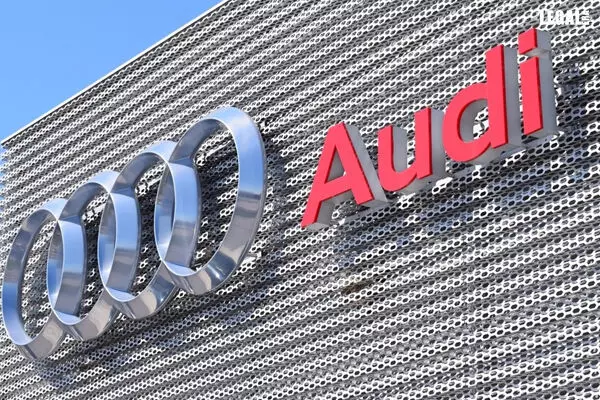- Home
- News
- Articles+
- Aerospace
- AI
- Agriculture
- Alternate Dispute Resolution
- Arbitration & Mediation
- Banking and Finance
- Bankruptcy
- Book Review
- Bribery & Corruption
- Commercial Litigation
- Competition Law
- Conference Reports
- Consumer Products
- Contract
- Corporate Governance
- Corporate Law
- Covid-19
- Cryptocurrency
- Cybersecurity
- Data Protection
- Defence
- Digital Economy
- E-commerce
- Employment Law
- Energy and Natural Resources
- Entertainment and Sports Law
- Environmental Law
- ESG
- FDI
- Food and Beverage
- Gaming
- Health Care
- IBC Diaries
- In Focus
- Inclusion & Diversity
- Insurance Law
- Intellectual Property
- International Law
- IP & Tech Era
- Know the Law
- Labour Laws
- Law & Policy and Regulation
- Litigation
- Litigation Funding
- Manufacturing
- Mergers & Acquisitions
- NFTs
- Privacy
- Private Equity
- Project Finance
- Real Estate
- Risk and Compliance
- Student Corner
- Take On Board
- Tax
- Technology Media and Telecom
- Tributes
- Viewpoint
- Zoom In
- Law Firms
- In-House
- Rankings
- E-Magazine
- Legal Era TV
- Events
- News
- Articles
- Aerospace
- AI
- Agriculture
- Alternate Dispute Resolution
- Arbitration & Mediation
- Banking and Finance
- Bankruptcy
- Book Review
- Bribery & Corruption
- Commercial Litigation
- Competition Law
- Conference Reports
- Consumer Products
- Contract
- Corporate Governance
- Corporate Law
- Covid-19
- Cryptocurrency
- Cybersecurity
- Data Protection
- Defence
- Digital Economy
- E-commerce
- Employment Law
- Energy and Natural Resources
- Entertainment and Sports Law
- Environmental Law
- ESG
- FDI
- Food and Beverage
- Gaming
- Health Care
- IBC Diaries
- In Focus
- Inclusion & Diversity
- Insurance Law
- Intellectual Property
- International Law
- IP & Tech Era
- Know the Law
- Labour Laws
- Law & Policy and Regulation
- Litigation
- Litigation Funding
- Manufacturing
- Mergers & Acquisitions
- NFTs
- Privacy
- Private Equity
- Project Finance
- Real Estate
- Risk and Compliance
- Student Corner
- Take On Board
- Tax
- Technology Media and Telecom
- Tributes
- Viewpoint
- Zoom In
- Law Firms
- In-House
- Rankings
- E-Magazine
- Legal Era TV
- Events
EU Court of Justice rules in Favor of Audi in Spare Parts Trademark Case

EU Court of Justice rules in Favor of Audi in Spare Parts Trademark Case
Notes that the space for the logo reproduced the overall shape of the four rings
The Court of Justice of the European Union (CJEU) has held that selling replacement car radiator grilles, adapted to fit the Audi logo, infringed the car manufacturer’s figurative EU trademark (EUTM).
As per the intellectual property rights specialists, the decision “will be well-received by automotive manufacturers in their efforts to stop the manufacturing of unofficial spare parts.”
A Polish trader had advertised online for car radiator grilles adapted for old Audi car models from the 1980s-1990s. The grilles contained a carved pit shape, identical to Audi’s EUTM of four interlocking rings registered for vehicles, spare parts, and automotive accessories. They were designed to hold the Audi emblem.
The CJEU observed that using an element whose shape was ‘similar or identical’ to the trademark meant, “using a sign in the course of trade in a manner liable to affect one or more of the functions of that trademark, was a matter for the national Court to ascertain.”
The bench noted that the radiator grilles did not come from Audi and were placed on the market without the company’s consent. The element designed for the attachment of the emblem was incorporated for marketing the radiator grilles by a third party.
The Court held that this could constitute a material link between the spare part and the proprietor of the Audi trademark. Therefore, it was liable to infringe the functions of the trademark, which guaranteed the origin or quality of the product.
On the other hand, the defendant argued that the molding was simply indicative that the parts were intended for Audi vehicles, referencing the vehicle’s marque.
However, the Court rejected the submission, noting that in its design, the article had gone further than simply indicating the suitability for the vehicle’s usage.
The defendant also cited the ‘repair clause’ for spare parts in community design regulation, which stipulated that it was not an infringement for a third party to reproduce spare parts to repair a complex product to its original appearance.
However, the CJEU said that the repair clause did not apply to the designs. Under the EU laws the ‘use of a sign in the course of trade’ was liable to impair the function of the Audi trademark.
The case was referred to the CJEU from a Warsaw, Poland Court, The European left it at the discretion of the national Court to determine whether the element of the radiator grille was identical to the Audi trademark. Secondly, whether the radiator grille was like one or more of the goods of which the trademark was registered.



